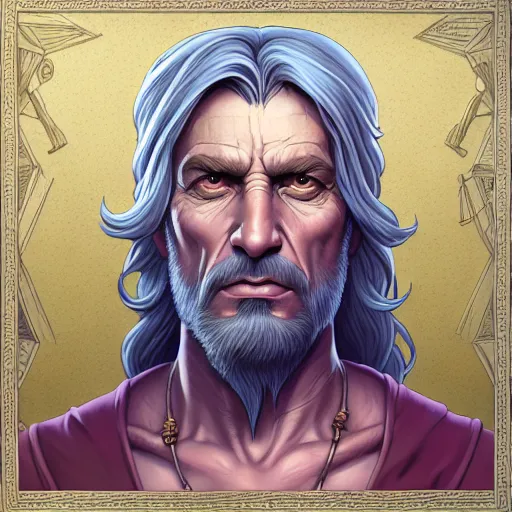
In a small, cobblestoned town in the heart of the Old Allasian Empire, the belltower tolls, its sonorous voice echoing through ancient alleyways. This tower, the centerpiece of the town, isn't a product of spontaneous creation. Instead, it bears witness to the artistic talents of Kismud Belli, a scrupulous craftsman who weaves tales through bricks, mortar, and, most fascinatingly, stone mosaics.
Born into a legacy of smiths and carpenters, Kismud, now 62, is the last remaining descendant of Stonewrights - an uncommon guild of craftspeople who transferred their love for the details onto perfectly shaped rocks and forged a bond with the earth as solid as the structures they built. From a tender age, Kismud's father choreographed his fingers on stone and wood, shaping him to cultivate a gaze that hid nothing from the concrete.
Childhood for Kismud meant accompanying his father across the empire, watching him transform bare places into grand churches and palaces. But Kismud didn't merely grow under the warmth of his father's workmanship. He bloomed in it. He learned, not just the science of measurements and balance, but also the divine rapport between a creator and his creation.
The passing of his father at the age of seventeen dealt him a wound steeped in unspent years and unlearned lessons. Kismud inherited his father's well-worn tools, a bequest that brimmed with expectations. It was then that resilience began weaving itself into his craft.
His hard work bore fruit - by thirty, Kismud had reshaped the landscape of Allasian architecture. Palaces and churches dotted the Empire with Byzantine voluptuousness. But unlike his father, Kismud was intent on leaving a distinct mark on his creations - he turned to stone mosaics, ordering river stones by color and size until a sequence or pattern revealed an incredibly detailed story.
The story on the walls of Allasian Church, for instance, is one that only Kismud's keen eye can decipher - a tale unraveling his deepest regret. Kismud had once loved a maiden who, due to their class differences, remained a forbidden fruit. With a heart trapped in stone, Kismud weaved his unfulfilled love into the frescos of the Allasian church - his ultimate tribute to an impossible affection.
Kismud Belli, now well-established and revered, continues to shape the town with his hands and heart. However, with age, his hands shake slightly under the weight of the hammer and chisel. A minor disability, some would say. But for the artisan, it's a flaw that threatens the only language he knows - his Craft. Yet, his spirit stays steadfast. For in his heart, the bell still tolls, and the hymn says, "Every stone I shape is another prayer in the wind."